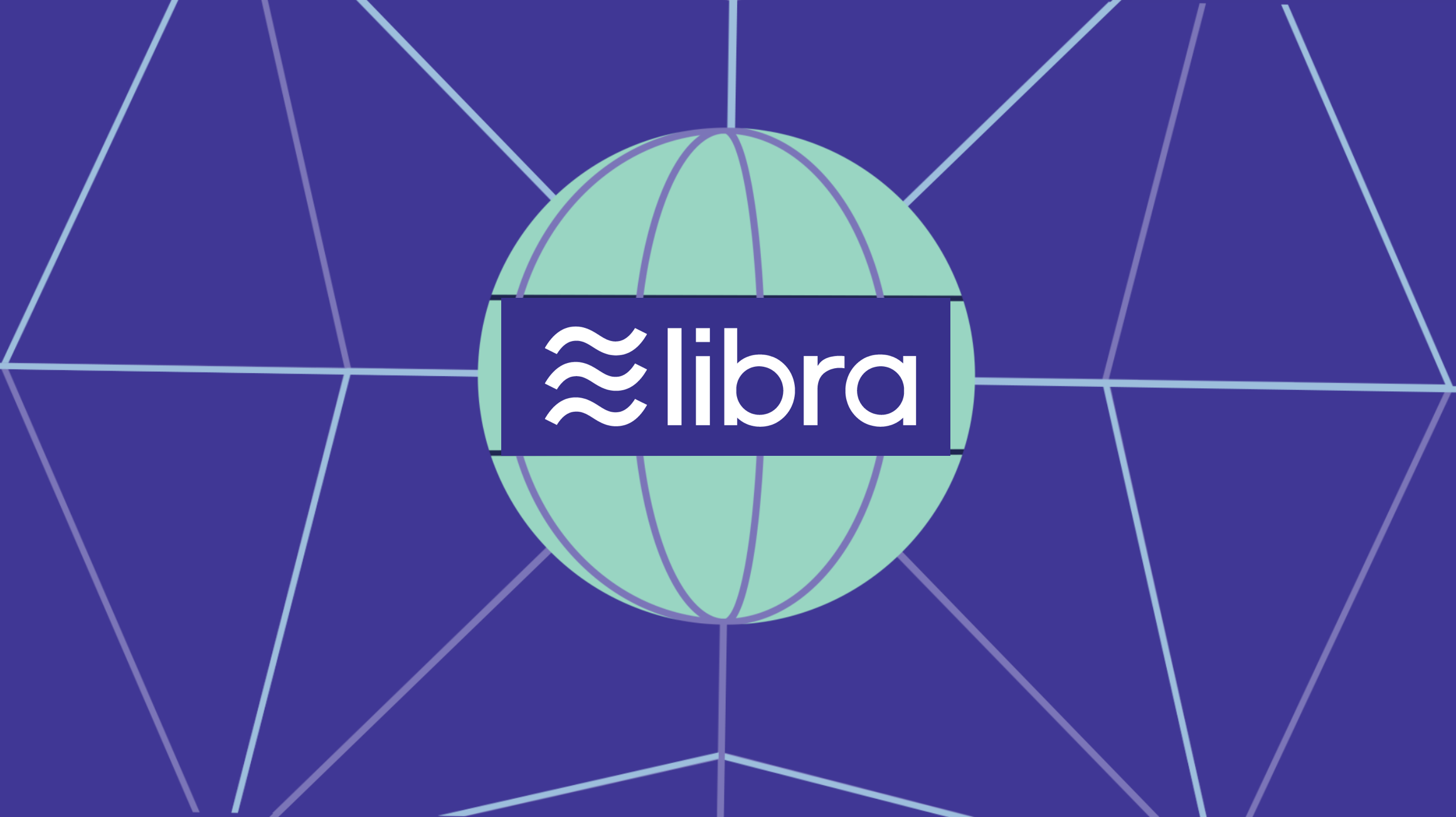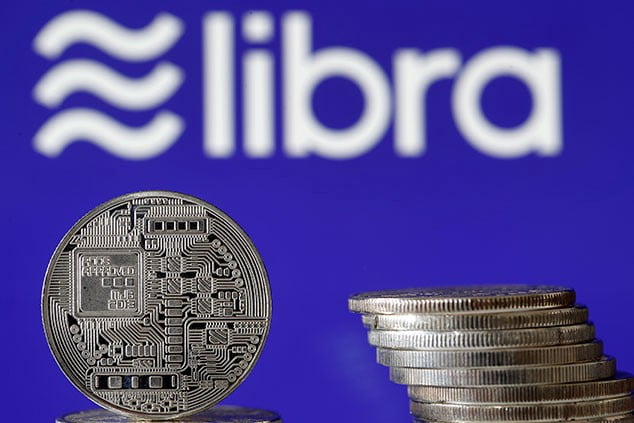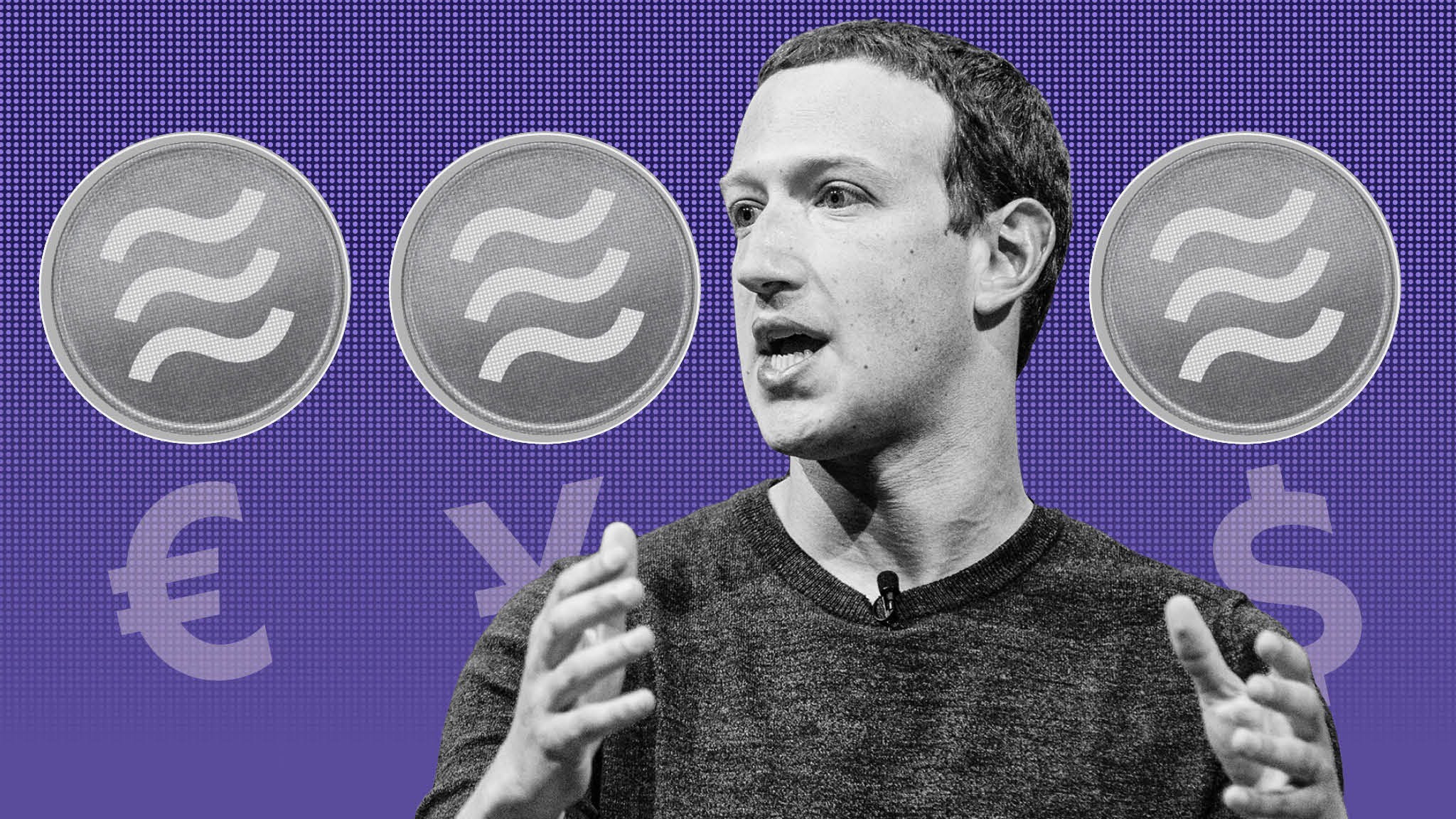Facebook cryptocurrency Libra is one of the biggest disappointments from the social media giant. What seemed like one of the greatest projects to revolutionize the monetary and financial world will come to light after two years of turbulence and with a very different future than promised.
It was a bomb that made many wobbles. At the height of the cryptocurrency boom, the ‘blockchain’ and the alternatives to the traditional monetary and financial system, Facebook launched the Libra project in the summer of 2019 (along with other multinationals). A sort of decentralized and independent currency that sought to go one step further in what was achieved by other initiatives such as bitcoin and posed a real pulse even to central banks. A year and a half later, Libra has just announced the launch of the first copies, which will be called Diem, and will be far from what they promised.
First Libra coin will be launched in January 2021
According to what was advanced by the Financial Times and later confirmed, in part, by The Libra Association (now The Diem Association), the group behind the project, its ideologists hope to launch its first currency during the month of January 2021. They will leave aside the initial ideas of ‘crypto’, decentralized and independent, because it will be a ‘stablecoin’ (similar to USDC), limited and backed by the US dollar (only the exact date is what Diem has not confirmed). So its value will not fluctuate or change by its movement, but will depend entirely on the price of the US currency and will be governed by its adjustments. The final name is also not Libra but Diem, completes the almost total turn of the project took. Although, according to some experts, it is not necessary to give up hopes yet.

One of these experts is José Antonio Bravo, an economist, and cryptocurrency expert. “The original idea is true that it was very revolutionary and above all that it was supported by Facebook and so many other companies such as Uber, Visa, Mastercard or PayPal, made central banks and other entities quite nervous. Come on, we just have to remember the pressure that was put on the initiative by all kinds of entities. But that same attention and other regulatory problems forced them to change. In April, they announced a good turnaround and now they are announcing a new change that brings it closer to PayPal than to bitcoin,” says the specialist.
The change for experts like Bravo is logical, especially given all the obstacles that regulators and entities were placed in their way, but their new objective may respond to other keys: to start testing the systems, gain confidence, and at the same time demonstrate their potential.
“In the end, this is a lot about trust and influence. And the movement made by Libra or Diem can go towards showing that it is present and that it is still a strong project. In part they are right, their initial movement relaunched like few others the idea of digital currencies and even the central banks promoted their initiatives in this direction. Now, for this or another reason, there is a lot of news about advances in this sense in national entities.”
As for how Diem will work, at least for the moment, everything points to the fact that, at least for the user, it will be something more similar to a sort of PayPal, or a video game coin than a bitcoin.
In other words, it can become a depot where you can deposit dollars and in exchange receive ‘diems’ to obtain benefits in Facebook services, discounts, insurance, or simply be able to trade better in their environments.
“In the end, the Social Network alone has more than 2,000 million registered users and that’s a lot of potential customers in one currency”. Although, for that very reason, Bravo doesn’t see how easy it is to even let it work like that.
It’s not as simple as it sounds
As an idea, it may sound good and simple. A kind of ‘token’ in the most classic style with a fixed exchange rate supported by the dollar and that serves to trade in different spaces, but deep down when talking about such a big project nothing is so easy. The first thing is that the regulators have been watching this system too long to let it work easily, the second thing is that it would attack some of its first partners such as PayPal itself, which abandoned the project quite some time ago, and the third thing is that, although lately, they are trying to hide, behind all this there is still Facebook, and its image is not too good lately.
The last of the announced news, the name change, maybe directly aimed at further disassociating this project from Facebook and from the idea that was originally given. So much so that the project leader himself has dropped it without much thought.
According to Stuart Levey, CEO of The Diem Association, based in Geneva, Switzerland, “The original name was linked to an early iteration of the project that received a difficult reception from the regulators. We have drastically changed that proposal,” as the executive told Reuters.

The separation of Facebook is key to the survival of the project, as indicated by Bravo. “In the end, it is a company that is highly criticized and pointed out by all types of users, and if the change in structure already directs the currency to a centralized model that moves away from cryptocurrencies like bitcoin, its relationship with Facebook increases suspicions even more. The regulators, those who watch and doubt whether the American Mark’s company carries out monopolistic practices, and those who believe that it is a company with which one must be very careful from the point of view of privacy”.
The expert points out complex situations such as the possibility that this currency ends up being banned for different users, for example, being citizens of countries like Iran or North Korea, or depending too much on the policies of Facebook or other partners that are part of the project.
“In the end, there will be an entity that issues this money and manages its evolution and, very importantly, the data of customers and users who use it”.
For now, 27 large multinationals are part of the project and from the company, it is made clear that they are independent, but the risk that this will be directed to the model of Chinese technologies is still in the environment.
Is China a better example?
The biggest fear, according to Bravo, both for regulators and entities and even for defenders of cryptocurrencies such as ‘bitcoin’ based on decentralization, is that this will only be one more step that will give more power to the corporations by taking it away from the State. And it is not so strange to think so since in China something similar has already begun and the regulators have decided to intervene. “There are cases of Alipay or Wechat, which are gigantic super platforms that have also been controlling payments for some years now and are increasingly perfecting their systems. It is not known what will happen with Diem, but it may move towards a payment platform or similar taking these cases as a model”, he points out.
The case of China is clear because they even stopped the Ant IPO, the company behind the Alipay platform and which is associated with Alibaba. The reason is that they pose a gigantic risk for banks and even for the state when it comes to controlling economic and monetary policy. Indeed, these companies mentioned do not bet on their currency but payment with their systems, but they have already entered the business of fast loans and even insurance. And in their genesis, they were quite similar to Amazon, Facebook, or WhatsApp, so the evolution doesn’t sound so far-fetched, although it is somewhat dystopian.
What Bravo does make clear is that projects like Facebook cryptocurrency Libra was expected to disrupt the market Libra or Diem, despite the turbulence and doubts, can help push concepts like digital currency and even help the growth of ideas like bitcoin. “In the end, it’s like using the internet, many would not have discovered it if they were not forced to know it for work. Because if more and more ideas, projects, and companies bet on this, more and more people will be encouraged to try and used to know how this technology works. Of course, this will have to be thought through to avoid it becoming a problem rather than an option.





